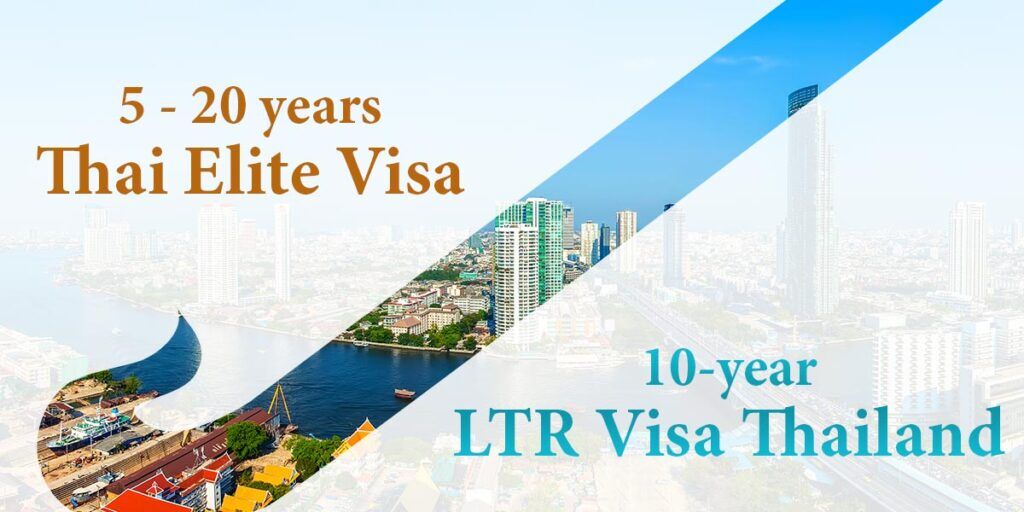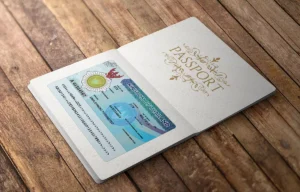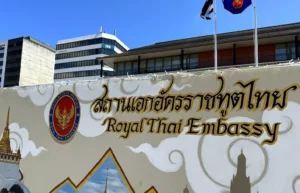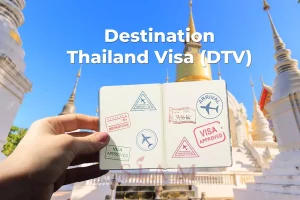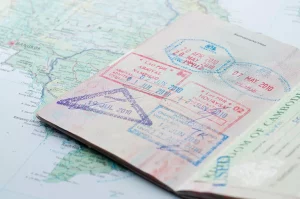Many people from around the world come here to live, travel, and retire in Thailand. If you’re planning a long stay, it’s important to pick the right visa.
Thailand offers a variety of visas to suit different needs, including tourist, retirement, education, and business visas, each with specific requirements and length of stay.
In this guide, we’ll look at two popular options: the Long Term Residency Visa and the Thai Privilege Visa. Both offer a way to stay in Thailand for a longer period than typical tourist visas, but they serve different purposes and have different rules.
This article will help you understand what each visa offers, so you can make an informed decision that fits your situation.
Long Term Resident Visa (LTR)
The Long-Term Resident (LTR) Visa is Thailand’s way of inviting skilled and well-off individuals to live and work in the country for up to 10 years. To get this visa, you need to show you have enough money through regular income or investments in Thailand.
It targets four main groups:
- Affluent global citizens
- Retirees with a good income
- Professionals who can work remotely
- Those with special skills.
This visa also lets you bring your family along — a spouse and any children under 20. To start the application, you’ll need to fit the financial profile for your group, have the right paperwork, and carry health insurance with good coverage or put down a sizable amount in a Thai bank.
You apply through the Thailand Board of Investment, and if successful, you get the visa for five years at first, with the chance to make it ten. If you’re in Thailand for a whole year, you must let the authorities know where you’re living. Some people with this visa might also pay less tax on their income, which is an added bonus.
Thailand Privilege Elite Visa
The Thai Privilege Visa, often known as the “Elite Visa,” is a special visa program for those who wish to stay in Thailand for long periods without the need for frequent visa runs. It’s a favorite among expats and retirees who seek a hassle-free experience.
This visa comes with a range of perks, like VIP immigration and passport control services, and a 24-hour contact center for any assistance needed.
To be eligible, there’s a membership fee, which varies based on the chosen package. There are 4 to choose from:
Unlike the LTR Visa, the Thai Privilege Visa doesn’t have strict financial or professional requirements, but it does come with a higher price tag. It’s a straightforward option for those who value convenience and are willing to pay for it.
Once you’re a member, the visa can last from five up to twenty years, depending on the program you select. It’s important to note that this visa doesn’t directly permit employment in Thailand—it’s designed for those who want to enjoy the Thai lifestyle without local employment obligations.
Thai LTR Visa vs. Thailand Privilege Visa: What’s Best for You?
Choosing between the Long-Term Resident (LTR) Visa and the Thai Privilege Visa comes down to your plans in Thailand and your financial setup. The LTR Visa is geared towards those who aim to work or invest in Thailand, with clear financial rules to meet. It’s a good match for experts in their field, retirees with a solid income, and their families, offering a stable stay and possible tax benefits.
The Thai Privilege Visa is all about ease and comfort. It skips the detailed financial checks in favor of a membership fee. If you’re not planning to work and want the simplest way to enjoy Thailand’s lifestyle, this could be the visa for you.
Application Process
Applying for either the Long-Term Resident (LTR) Visa or the Thai Privilege Visa involves a series of steps. For the LTR Visa, you start by confirming you meet the criteria for one of the four categories. Gather your documents, such as proof of income or investment, and submit your application to the Thailand Board of Investment. Remember to have health insurance that meets the visa requirements or a deposit in a Thai bank.
For the Thailand Privilege Visa, the process begins by choosing the right membership package for you. Once you’ve paid the fee, you’ll submit your application along with any required personal documents. There’s no need for proof of income or professional status, but you still need to pass the background check.
Both processes are straightforward, but they do require attention to detail. Missing a single step or document can delay your application. It’s also wise to keep up to date with any changes in visa policies to ensure a smooth application process.
Contact Siam Legal Today
Thailand offers two appealing visa options for those looking to stay longer: the Long-Term Resident (LTR) Visa, ideal for working professionals and retirees with a stable income, and the Thai Privilege Visa, which is perfect for a relaxed stay but comes at a higher price. Choose the one that best fits your way of life, budget, and personal requirements. Keep up with the latest visa rules and seek advice from specialists to make your application process go smoothly.
If you’re planning to settle in Thailand and are unsure about the right visa for you, we’re here to guide you. Our team is skilled in guiding you through the visa application steps, helping you to pick the most suitable option for your time in Thailand. We’re knowledgeable about the country’s immigration policies and can offer you up-to-date advice and tailored help.







